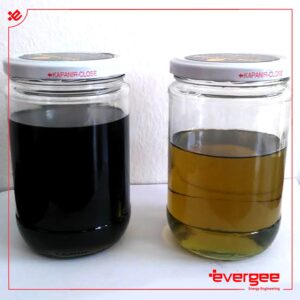Fuel Polishing System

Diesel fuel with its low sulfur and biodiesel additive is susceptible to physical and biological contamination, especially when stored for medium to long durations, particularly in the case of generators. If not controlled and the fuel undergoes continuous neglect in terms of maintenance, the inevitable consequence can be the generators failing to operate when needed or causing expensive repairs. In facilities where downtime is intolerable due to commercial, vital, or national security risks, this situation is of paramount importance and should not be overlooked.
Fuel polishing systems, designed to maintain continuous maintenance cycles for fuel during prolonged storage, ensure that the diesel is protected within the specifications it left the refinery. A properly designed fuel polishing system should:
- Neutralize microorganisms
- Clean ferrous agents
- Separate water in both free and emulsified states in different stages
- Gradually clean solid particles in the fuel at a level of at least 2 microns (absolute)
- Be designed and manufactured to automatically dose chemical agents when needed
Fuel polishing systems should not contain yellow metals and their alloys at any point in the diesel system due to the known adverse interactions and oxidation risk. A well-designed fuel polishing device guarantees the continuous protection of fuel in accordance with ASTM D975 and EN590 standards, preventing all fuel-related downtime risks.
